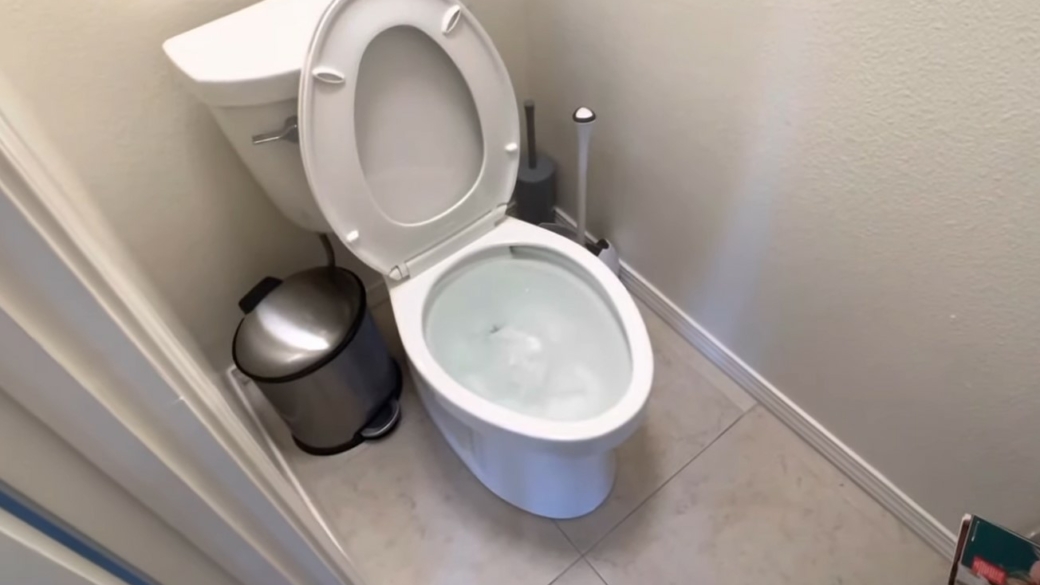How Long Can a Landlord Leave You Without a Working Toilet?
In the context of tenant-landlord relationships, the matter of maintenance and repairs takes center stage as a crucial concern. A functional toilet isn’t merely a basic amenity but a fundamental necessity in any dwelling. But if your toilet were to break, how long can a landlord leave you without a working toilet?
This article delves into the nuances concerning the time-frame in which a landlord is obligated to address a malfunctioning toilet, shedding light on the rights and responsibilities of both parties involved.
Is the Landlord Responsible When the Toilet is Broken?
Health and safety standards in most regions of the country require landlords to provide fully operational bathroom facilities. The responsibility for fixing the toilet rests solely with the landlord, unless the tenant has damaged it through improper use or neglect.
For instance, if a tenant causes a toilet to become clogged by flushing unwanted items, the landlord may hold the tenant accountable. However, if the toilet malfunctions due to regular wear and tear, it is the landlord’s immediate responsibility to arrange for repairs.
So How Long Can a Landlord Leave You Without a Working Toilet?
The precise time-frame can fluctuate based on state regulations and the specific terms specified in the rental agreement. As a general practice, landlords are typically required to attend to urgent repairs, such as a malfunctioning toilet, promptly, often within a range of 24 to 72 hours.
For example, in California, legal requirements stipulate that landlords must address significant issues within a reasonable time, often interpreted as 30 days by the courts.
However, given the urgency of a non-functioning toilet, it’s expected that repairs will commence much sooner. It’s always advisable to consult local laws and review the rental agreement to understand the precise responsibilities of the landlord in such situations.
For your convenience, we’ve created a landlord tenant laws by state table which allows you to access the specific laws for the state you live in.
Legal Requirements for Landlords
Landlords are held to the standard of the ‘warranty of habitability,’ a legal principle that mandates them to keep rental properties in a condition suitable for living. This obligation encompasses the proper functioning of the plumbing system, which includes the toilet.
As an illustration, according to New York law, landlords are obligated to promptly address emergency repairs, such as a malfunctioning toilet.
Failing to do so can result in legal consequences, potentially granting the tenant the right to withhold rent or to undertake repairs and deduct the costs from the rent. It is essential for landlords to have a thorough understanding of the specific legal obligations in their area to prevent potential legal complications.
Tenant Obligations in Terms of Repairs
While the primary responsibility for significant repairs falls on the landlord, tenants also have a part to play in upholding the livability of the property. It is their duty to use the facilities correctly and promptly report any problems to the landlord.
For example, if a tenant comes across a minor problem like a slow toilet leak, it becomes their responsibility to inform the landlord promptly to prevent it from turning into a more significant issue.
Neglecting to report such problems in a timely manner could potentially result in the tenant bearing the responsibility for repairs, as they allowed the issue to worsen through neglect.
How to Ask Your Landlord to Fix the Toilet
Effective communication plays a pivotal role in achieving prompt solutions to maintenance problems. Tenants should swiftly inform their landlords about a malfunctioning toilet, preferably in writing, to keep a documented record of the communication.
For instance, a tenant may choose to send an email or text message outlining the problem and expressing the need for immediate repairs. It’s a good practice to ensure clarity and conciseness in the communication, including all essential details to expedite a speedy resolution. Additionally, following up with a phone call can further underscore the urgency of the situation.
What if the Landlord Refuses to Fix the Toilet?
In the unfortunate scenario where a landlord declines to address essential repairs, they should be considered immoral. In this scenario, tenants have several options at their disposal.
They can consider making the repairs themselves and subtracting the costs from the rent, a legal solution referred to as ‘repair and deduct.’ After giving the landlord a chance to fix the issue, this should be the last resort.
Tips for Dealing with a Broken Toilet in Your Apartment
While awaiting the landlord’s repair of the toilet, tenants can take specific measures to alleviate the inconvenience. This may involve attempting to unclog the toilet using a plunger or turning off the water supply to prevent potential flooding.
FAQs
What constitutes a reasonable time for toilet repairs?
A “reasonable time” is a time that allows the landlord to resolve the issue without causing the tenant undue inconvenience. Time-frame depends on severity of problem and local landlord-tenant laws.
Can I withhold rent if my landlord does not fix the toilet?
If a landlord fails to keep up with necessary repairs and the property becomes inhabitable, tenants in many areas of the country can withhold rent until the problem is resolved. Still, this should be done with caution and ideally with the advice of legal counsel to avoid unintended consequences.
Conclusion
Before attempting to fix a problem such as a broken toilet, both parties must have a thorough understanding of their respective roles and the applicable laws. Landlords are responsible for maintaining essential amenities, but tenants must use them responsibly and report any problems.
A broken toilet is not just an inconvenience; it could affect tenant-landlord legal obligations. Both parties bear the responsibility of acting responsibly and in compliance with the law to maintain a harmonious living arrangement. We hope this comprehensive guide will help tenants and landlords handle broken toilets in rental properties with confidence and effectiveness.
If you want to also know how long your landlord can leave you without a fridge, read this post.


